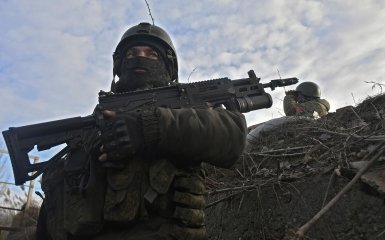The American analysts point out that the Russian invaders launched offensive operations at several areas of the front at once against the backdrop of problems with Western aid to Ukraine.
The Russians are trying to take advantage of the AFU's weak moment on the battlefield
The team of the American Institute for the Study of War concluded that as of February 19, the Russian army is conducting at least three offensive operations:
along the border of Kharkiv and Luhansk regions, in particular in the direction of Kupiansk and Lyman;
in and around Avdiivka;
near Robotyne in the west of the Zaporizhzhia region.
According to experts, the Russians' decision to move forward was heavily influenced by a significant delay in the provision of Western security assistance.
What is essential to understand is that it is primarily about artillery ammunition and critical air defence systems.
The lack of this weaponry forced the Ukrainian soldiers to withdraw from Avdiivka.
A critical shortage of Western-provided equipment and fears of a complete end to US military aid have forced Ukrainian forces to disperse equipment across the front, likely encouraging Russian forces to take advantage of the situation.
ISW warns Ukraine about possible risks
According to analysts, the Russian invaders have launched an offensive outside Avdiivka — along the border of Kharkiv and Luhansk regions since the beginning of January 2024 and in the western part of Zaporizhzhia region in the last 48 hours.
The American Institute for the Study of War draws attention to the fact that this Russian offensive will, quite possibly, prevent the soldiers of the Armed Forces from preparing personnel and equipment for the resumption of counteroffensive operations.
Ukraine will suffer if it simply digs in and tries to defend itself until the end of 2024, as some Western states and analysts advocate.




